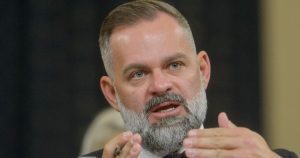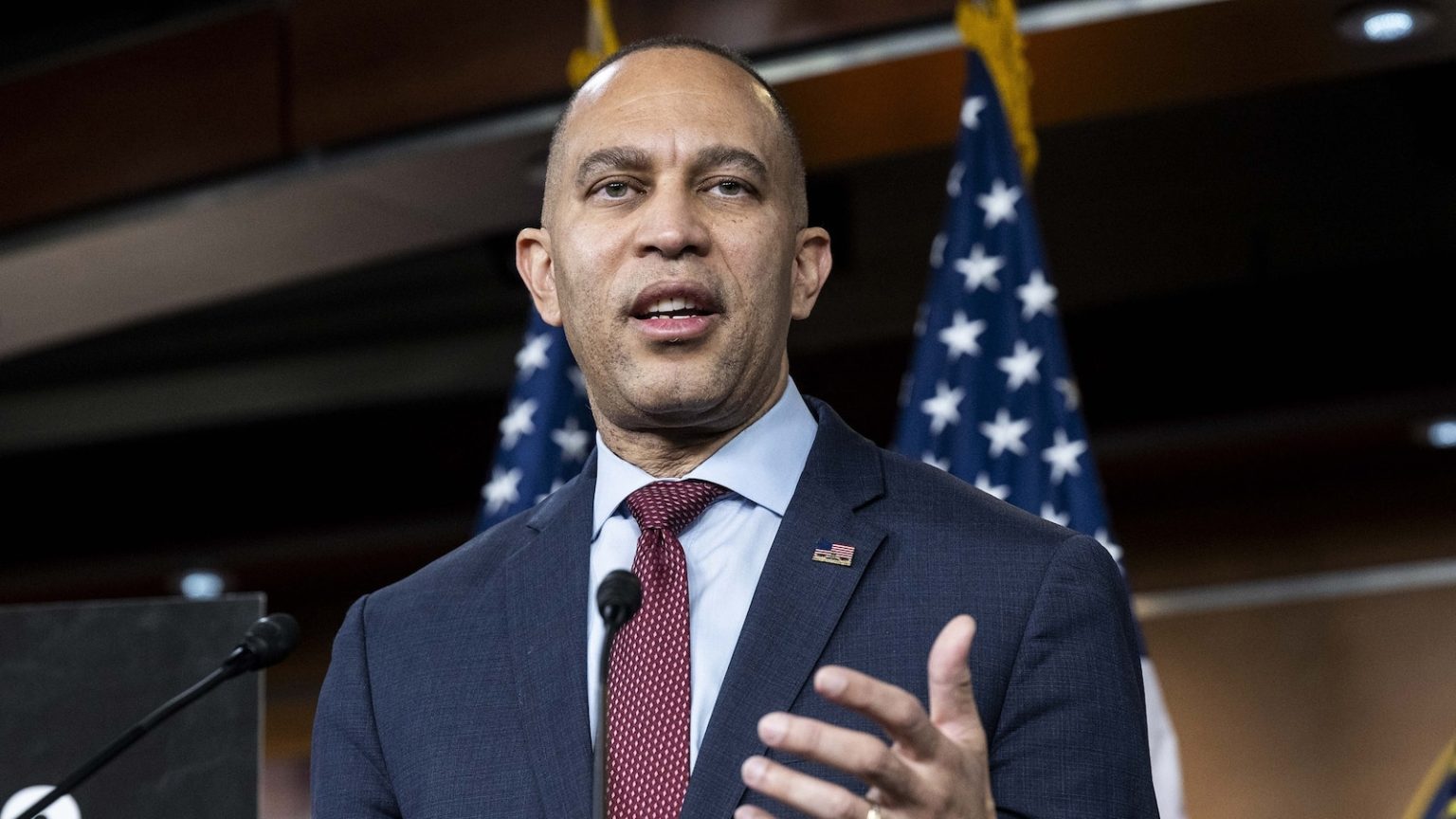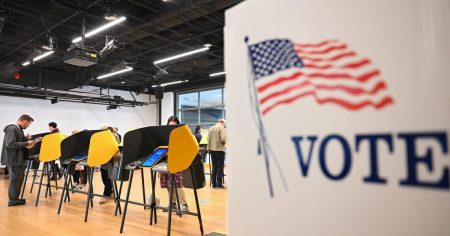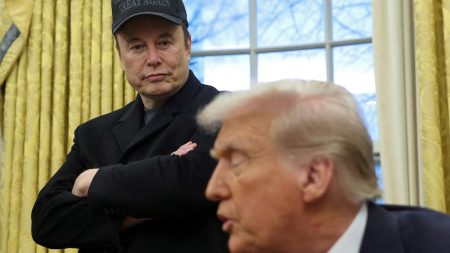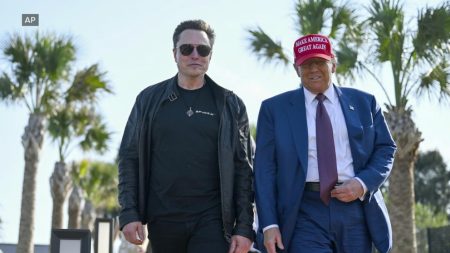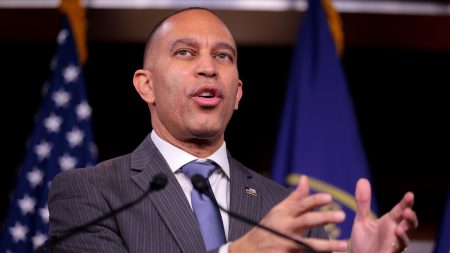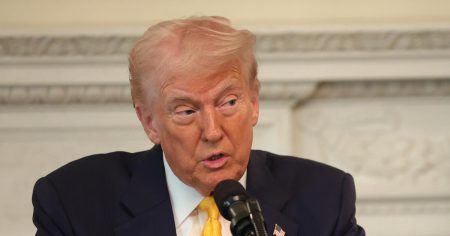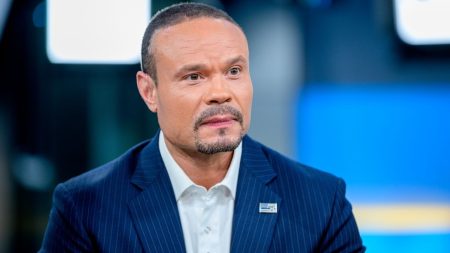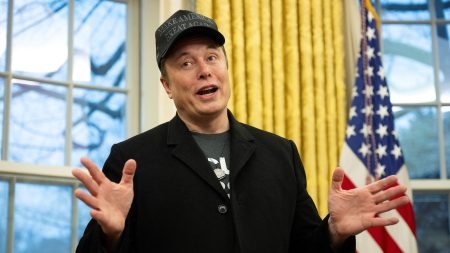A Nation in Turmoil: Key Developments from "This Week with George Stephanopoulos"
1. President Trump’s Government Overhaul and the Role of Elon Musk
The transcript opens with a stark look at the sweeping changes taking place in the federal government under President Trump’s leadership, with Elon Musk playing a central role. Thousands of federal employees have been let go, and others have been offered paid leave until September, marking a significant shift in the bureaucracy. Musk, who met with Trump in the Oval Office, emphasized that the people had voted for "major government reform," and that entire agencies might need to be dismantled to achieve this. He likened the process to removing weeds, stating that partial measures would allow the bureaucracy to regrow. While Democrats, including Senator Elizabeth Warren, have criticized these actions as a fight between "hardworking people and the billionaires," Musk and Trump appear undeterred.
The layoffs have targeted newer employees across multiple agencies, including the Department of Energy, Veterans Affairs, and the CDC. However, there have been some reversals, such as the National Nuclear Security Administration recalling fired employees. Courts have allowed Musk’s organization, DOGE, to access sensitive records from federal agencies, though Democrats have vowed to challenge these actions legally. Mary Bruce of ABC News noted that the process has been chaotic, with the White House pushing forward despite legal obstacles.
2. The Standoff in New York: Corruption Charges and Prosecutor Resignations
The transcript also delves into a tense standoff in New York, where top federal prosecutors have resigned en masse over the Justice Department’s decision to drop corruption charges against New York City Mayor Eric Adams. Adams, who denied any wrongdoing, faces charges related to bribery, fraud, and illegal campaign donations. The prosecutors, including Danielle Sassoon, a conservative appointee of Trump, accused the administration of engaging in a quid pro quo, offering to drop the charges in exchange for Adams’ cooperation on immigration policies.
This exodus of resignations has drawn comparisons to the "Saturday Night Massacre" of the Nixon era, with many viewing it as a crisis of confidence in the Justice Department. The case has sparked concerns about the politicization of justice, with critics arguing that the Trump administration is using the legal system as a tool for political leverage. The situation remains unresolved, as a judge has yet to rule on the dismissal motion.
3. Ukraine Peace Talks and the Exclusion of Zelenskyy
International tensions took center stage as the transcript explored President Trump’s efforts to negotiate a peace deal in Ukraine, with talks set to take place in Saudi Arabia. However, Ukrainian President Volodymyr Zelenskyy expressed frustration over being excluded from the initial negotiations, stating, "We don’t have any papers, any invitations." The exclusion has raised concerns about Ukraine’s role in shaping its own future, with many questioning whether the U.S. and Russia are positioning themselves as the primary brokers of peace.
The situation has been further complicated by comments from Defense Secretary Pete Hegseth, who suggested that Ukraine’s pre-2014 borders may be an unrealistic goal. This sentiment has drawn criticism, with some arguing that it undermines Ukraine’s position in the negotiations. Meanwhile, Vice President J.D. Vance’s remarks at the Munich Security Conference, in which he accused European leaders of posing a greater threat to regional security than Russia or China, have strained U.S.-European relations. Vance’s speech was seen as a direct challenge to the transatlantic alliance, with European leaders expressing shock and dismay.
4. Democratic Response and Political Strategy
In an exclusive interview with Jonathan Karl, House Democratic Leader Hakeem Jeffries expressed deep concerns about the Trump administration’s actions, both at home and abroad. Jeffries criticized the president’s handling of the Ukraine peace talks, as well as the layoffs of federal workers, which he characterized as part of a broader effort to "dismantle the federal bureaucracy." He accused the administration of promoting "lawlessness and disorder," pointing to the pardoning of violent felons and the undermining of public safety.
Jeffries also addressed the challenge of leading the Democratic Party, acknowledging that the party needs to regain its footing in the wake of the 2024 election. He called for a focus on issues like lowering the cost of living, comprehensive immigration reform, and protecting social safety nets. However, he emphasized that Democrats must also push back against Republican efforts to jam through policies like tax cuts for the wealthy and attacks on healthcare and Social Security.
5. Republican Perspectives and the Path Forward
Senator Markwayne Mullin of Oklahoma offered a contrasting viewpoint, defending Trump’s actions as a necessary step toward achieving "peace through strength." Mullin argued that Ukraine’s exclusion from the initial talks was a strategic move to avoid derailing negotiations and that Trump’s leadership would ultimately yield a favorable outcome. He also expressed support for the layoffs of federal workers, framing them as a necessary step to address the nation’s debt and inefficiencies.
Mullin acknowledged concerns about the speed of the layoffs but emphasized the importance of fiscal responsibility. He also dismissed critics of Trump’s handling of the Ukraine peace talks, suggesting that the president’s negotiating skills, as outlined in "The Art of the Deal," would prevail. However, he conceded that the administration’s actions have spurred significant criticism, both domestically and internationally.
6. Roundtable Analysis: Justice, Politics, and the Future of Democracy
The roundtable discussion brought together a diverse group of analysts to weigh in on the week’s events. Former DNC Chair Donna Brazile and Democratic strategist Faiz Shakir criticized the Trump administration’s actions as a dangerous erosion of democratic norms, particularly the politicization of the Justice Department. They argued that the dismissal of the Adams case and the investigation into resigning prosecutors were part of a broader pattern of undermining the rule of law.
On the Republican side, former RNC Chair Reince Priebus downplayed the significance of Trump’s statements, characterizing them as a distraction. He argued that the Justice Department has the authority to dismiss cases and that the president’s actions, while controversial, were not unprecedented. However, Sarah Isgur, a former Trump Justice Department spokesperson, acknowledged that the resignations of career prosecutors added gravity to the situation, as they signaled a deep-seated concern about the integrity of the legal process.
The discussion also touched on the broader challenges facing both parties, with Brazile and Shakir urging Democrats to focus on championing the rights of working-class Americans and standing firm against Republican policies. Priebus, meanwhile, suggested that the Democratic Party’s brand was in disarray, with many voters turning to Trump as a symbol of change.
In closing, the roundtable highlighted the deep divisions in American politics and the uncertain path ahead. With the nation grappling with significant domestic and international challenges, the transcript underscores the urgent need for leadership that can bridge divides and restore faith in the democratic process.


